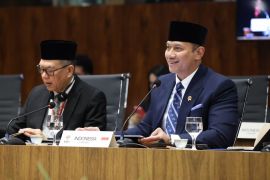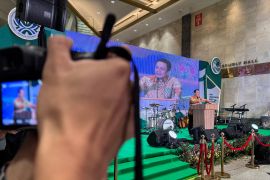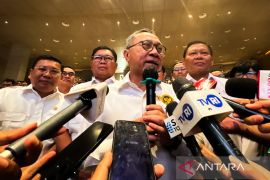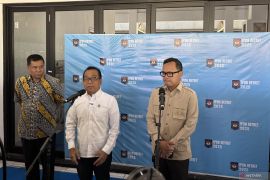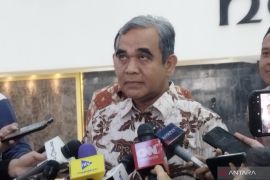"Gas production at home is high, but most of it is exported. Meanwhile, domestic oil consumption is also high. We even tend to be inefficient in energy consumption," said Ninasapti Triaswati, an economic observer from the University of Indonesia.Jakarta (ANTARA News) - Nearly 80 percent of the revenue obtained from non-oil and non-gas industries is used as government subsidy for fuel oils, which has reached Rp250 trillion, according to an economic analyst.
"Gas production at home is high, but most of it is exported. Meanwhile, domestic oil consumption is also high. We even tend to be inefficient in energy consumption," said Ninasapti Triaswati, an economic observer from the University of Indonesia, here on Tuesday.
"Indonesia has enough potential to diversify its energy resources so it would not need to depend on crude," she added.
Because of its high dependence on crude, Indonesia became an oil importer country after domestic production failed to keep up with national consumption.
Several years ago, Indonesia was one of the major oil exporting countries of the Organization of Petroleum Exporting Countries (OPEC).
"Indonesia has gas, coal, geothermal, hydropower and solar energy potentials that could be utilized as energy sources. But we still do not make optimal use of our resources," Ninasapti pointed out.
"It would be much better if Indonesia saves on its fuel subsidy and focuses on energy diversification. That way, we will have more non-oil energy sources," she added.
"So far, the government`s excuse for not doing so has been lack of infrastructure. But that is because of inconsistent planning, which is not implemented in the end anyway," Ninasapti noted.
"The use of gas to fuel cars has still remained limited to discussions. No progress has been made yet," she stated.
"We have to be aware of this and set a clear target for shifting to other types of energy sources so we no longer have to depend so much on fuel oils. However, the use of fuel oils need not be banned. Such measures will not help solve the problem," Ninasapti explained.
At the end of last month, the ministry of mineral resources issued a ruling banning the use of fuel oils by trucks belonging to plantation and mining companies.
The government will also launch a consumption efficiency programme in its efforts to save about 2 million kilolitres of subsidized fuel in 2012.
"Without it, consumption will reach 46 million kilolitres. We can cut the predicted consumption to 44 million only with the launch of the efficiency programme," Deputy Minister of Energy and Mineral Resources Rudi Rubiandini said in Hamburg earlier this month.
He noted that the government had banned state-owned vehicles in Jakarta and its satellite towns of Bogor, Depok, Tangerang and Bekasi from using subsidized fuels since June 1, 2012.
"Other areas in Java and Bali were also included since August 1, 2012," Rudi said.(*)
Editor: Heru Purwanto
Copyright © ANTARA 2012
